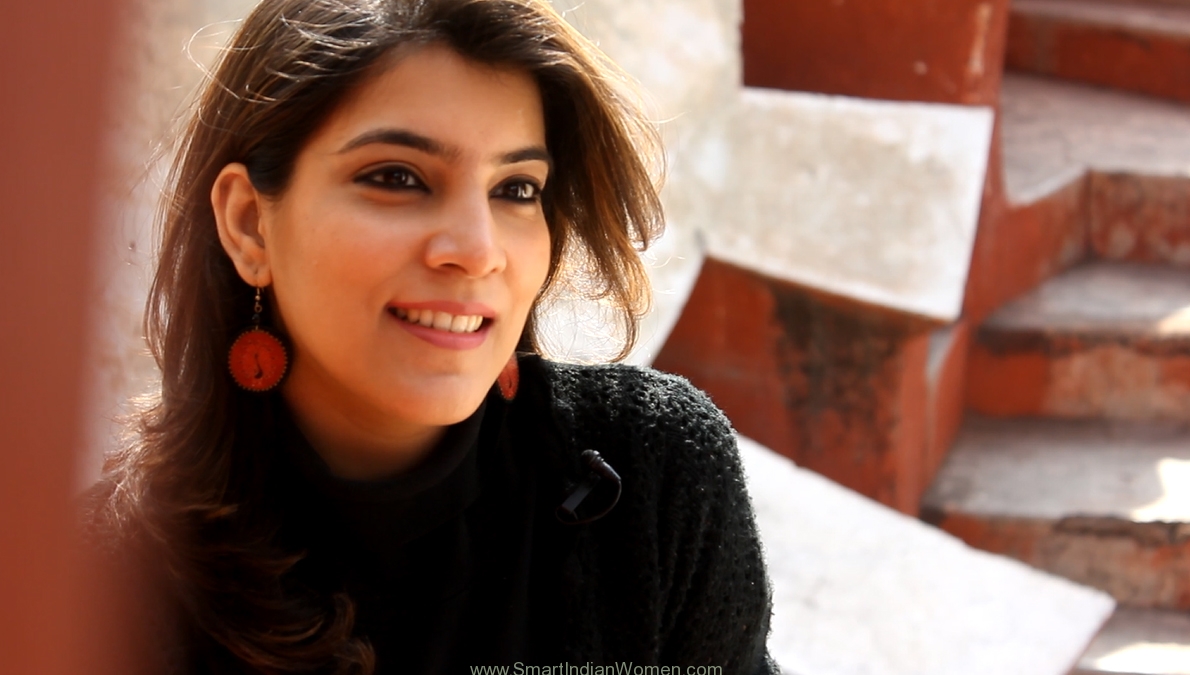NEW DELHI :
Hi Sahar, thanks for taking the time to chat with SIW. Tell us a little bit about yourself and your work.
Sahar : I’ve been in business of television news for almost 15 years. Having done everything from reporting, writing and producing shows, I have settled into being a news anchor for mainstream political news and specializing in arts journalism. I am currently the Afternoon News face for News X. Apart from that, I have launched by own design brand for home decor and jewelry called Chamak Patti. This includes furniture, home ware and jewelry. More recently, I launched Asia’s first web channel on the arts, called Hunar TV. This includes catchy, peppy yet in-depth dialogues with artists from visual arts, music, theatre, dance, writing, etc. I have been invited by LimeRoad to be part of their style council to help create new looks for their customers.
What inspired you to get into this profession?
Sahar : In both the businesses that I run, the biggest inspiration has been the world of art. In Chamak Patti, I myself design and make the products. But these products are works of art. Since they’re personally executed, each piece is unique, like a collector’s item, not repeated for any second client. For Hunar TV, the main thrust for creating video capsules is to ensure people from outside the art world are introduced to this magnificent world of artists’ studio and their thought process.
What is your USP?
Sahar : In both my businesses, it is my twin understanding of news and art. I am aware how the real relates to the transcendent. It is this very understanding that helps me figure how design and art fits into our needs, our lives.
How someone can start the same business as yours in terms of investment, material procurement, production, and marketing etc?
Sahar : For Chamak Patti, I started on a very small scale and invested my own money. Today the sale of products takes care of more investment. From my personal experience, the simpler the formula, the less complicated the business. Material procurement has to be done after a lot of research on what your raw product is and where to get it best from. Marketing is relatively easier today. I trust social media and my own large data base of contacts.
For Hunar TV, investment was larger because there was expensive equipment to be bought and a team of experts to maintain. I strongly depend on sponsorship funds for each of the video capsules we create. Marketing has been strong on social media and by strategic partnerships with well established names.
Any challenge you are facing in your profession and how you overcome that?
Sahar : The biggest challenge has always been to ensure that funds keep coming in for the next big step to be taken. You gradually learn how to overcome it. There’s never one single formula on how to overcome a challenge. Every formula that you can think of is put to test and you eventually realize which formula works when and how! But in your mind, it’s more important to ensure you take all the criticism and warnings in your stride, it’s important to willingly take the plunge and have the grit to make it happen.
What are your plans for the future?
Sahar : Team expansion for both my businesses is the future plan. Having Chamak Patti products available outside India by logistically making the current structure stronger. For Hunar TV, I would like to create more interesting video capsules on a daily basis and have it shared more frequently.
How you manage your personal and professional life?
Sahar : More than time management, what works better for me is task management. I am a brilliant multi-tasker and manage to slip in and out of my professional and personal engagements with great ease. I often take my toddler to client meetings and shoots. And I often have important con-calls while taking care of my child at home. But most importantly, it’s impossible to balance this without a helpful mother and a supportive husband. My family is my pillar of support. I would achieve very little without them.
What are your favorite books that you would recommend SIW family?
Sahar : I’m afraid I get very little time to read!! I will soon be recommending a self-authored book to be read! Ha!!
What advice would you give to young women readers of SIW who want to follow a similar career path as you?
Sahar : Believe in yourself because only you know yourself best. There are plenty voices out there to scare you from taking a bold step that could be different or experimental. It’s important to take the plunge for a career you believe in. And it also helps to have your family understand why you need to do what you want to do! If not, go ahead nevertheless…
All images are property of “Chamak Patti” and required permissions have been taken to publish it on www.smartindianwomen.com website.
source: http://www.smartindianwomen.com / 2015









